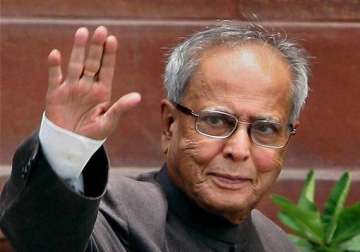New Delhi: President Pranab Mukherjee on Thursday approved Congress president Sonia Gandhi's pet food security bill, making it a law.
"The National Food Security Bill, 2013 has received the assent of the President of India," said a statement from the Rashtrapati Bhavan.
The Lok Sabha passed the bill Aug 26 while the Rajya Sabha cleared it Sep 2.
The bill was introduced in parliament in December 2011.
The largest scheme anywhere in the world gives right to subsidised grains to two-thirds of India's 1.2 billion population numbering around 800 million.
Under the legislation, beneficiaries would get five kg of grain per person per month, including rice at Rs.3 per kg, wheat at Rs.2 per kg and coarse grains at Re.1 per kg.
The legislation, part of the Congress election manifesto of 2009, is expected to be a game-changer for the party ahead of assembly polls in five states - Chhattisgarh, Delhi, Madhya Pradesh, Mizoram and Rajasthan - this year-end and the 2014 parliamentary elections.
Opposition parties have called it a vote security bill.
The bill, entailing an annual expenditure of around Rs.1.30 lakh crore, has also been criticised as it would further stress a slowing down economy and a sliding rupee.
However, Congress says the additional food subsidy burden of around Rs.28,000 crore can be taken care of and would not affect the fiscal deficit.
The real challenge for Congress is now to get the bill rolled out, a responsibility entrusted with state governments.
The bill proposes meal entitlement to specific groups, including pregnant women and lactating mothers; children between six months and 14 years; malnourished kids; disaster-affected people; and those who are destitute, homeless and starving.
The measure envisages food grain entitlement for up to 75 percent of the rural population and up to 50 percent of people living in urban areas.
